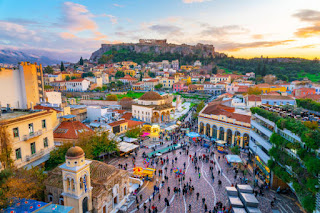St Bernard of Clairvaux called the Holy Spirit “the kiss
of the Father”.
‘If, as properly understood, the Father is he who kisses,
the Son he who is kissed, then it cannot be wrong to see in the kiss the Holy
Spirit, for he is the imperturbable peace of the Father and the Son, their
unshakeable bond, their undivided love, their indivisible unity’.
The Holy Spirit is the love of the Father for the Son and
the Son for the Father. It is boundless; when the breath of God is poured on
the disciples at Pentecost they are sent from the Holy Land to the world
beyond. God sends them out of the familiar and we too find ourselves sent
beyond our comfort zones because all belongs to God.
In early times as in Exodus 38:11 if anyone wanted to consult
the Lord, they would go to the meeting tent outside the camp. Outside our
churches, our culturally conditioned beliefs and perceptions, ‘outside our
camp’ is where we are sent as God cannot be controlled by us and in this way we
discover who we truly are.
Mother Teresa dared to leave her cloister, her home and
look for God among the dying on the streets of Calcutta. Our spiritual life is
lived in the dynamic of living in God’s love and sharing God’s love, as Mother
Teresa said, ‘the problem with the world is that we draw the circle of our
family too small’.
‘The spiritual life is being caught up in the heady
atmosphere of God, the dizzy oxygen of God’s breathing that never lets us quite
catch our breath’ T. Radcliffe.
Gentle
Spirit, breathe your life into us,
Strong
Spirit, open our closed doors to you,
Universal
Spirit, inspire us to work for justice
Spirit
of Jesus, teach us to walk, to pray, to live, to love your way.
Awaken
our dreams, expand our horizon, send your healing and hope
through
Jesus Christ our Lord.

































